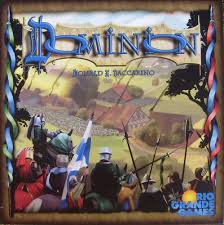记忆方法
1、domin- + -ion.
2、=> rule, dominate, govern, control.
2、=> rule, dominate, govern, control.
英语词源
- dominion
-
dominion: [15] Dominion, in common with demesne, domain, dominant, dominate, domineer, dominie, domino, and don, and indeed danger and dungeon, comes ultimately from Latin dominus ‘lord, master’. This was a derivative of Latin domus ‘house’ (source of English dome) and, like the parallel Greek formation despótēs (source of English despot), originally meant ‘master of the house’.
Its most direct descendant in modern English is don [17]. This is the Spanish reflex of Latin dominus, used as a title of respect for Spanish lords or gentlemen, and has been applied since the mid 17th century (originally as a piece of university slang) to university teachers. Of derivatives, dominion comes from Latin dominium ‘property’ (of which a post-classical descendant was dominiō or domniō, source of English dungeon); dominate [17] and dominant [15] come from the verb dominārī ‘be lord and master’; domineer [16] is also from dominārī, via French dominer and early modern Dutch domineren; and dominie [17], a Scottish term for a ‘schoolmaster’, probably comes from the Latin vocative case dominē.
=> dame, danger, demesne, despot, dome, domestic, dominate - dominion (n.)
- early 15c., from Old French dominion "dominion, rule, power," from Medieval Latin dominionem (nominative dominio), corresponding to Latin dominium "property, ownership," from dominus (see domination).
British sovereign colonies often were called dominions, hence the Dominion of Canada, the formal title after the 1867 union, and Old Dominion, the popular name for the U.S. state of Virginia, first recorded 1778.
权威例句
- 1. The Republic is a dominion of the Brazilian people.
- 这个共和国是巴西人民的领土。
- 2. They truly believe they have dominion over us.
- 他们真的以为他们对我们有统治权。
- 3. Man has dominion over the natural world.
- 人类拥有对自然界的统治权。
- 4. Alexander held dominion over a vast area.
- 亚历山大曾统治过辽阔的地域.
- 5. Our country's dominion is very vast.
- 我国疆域辽阔.
